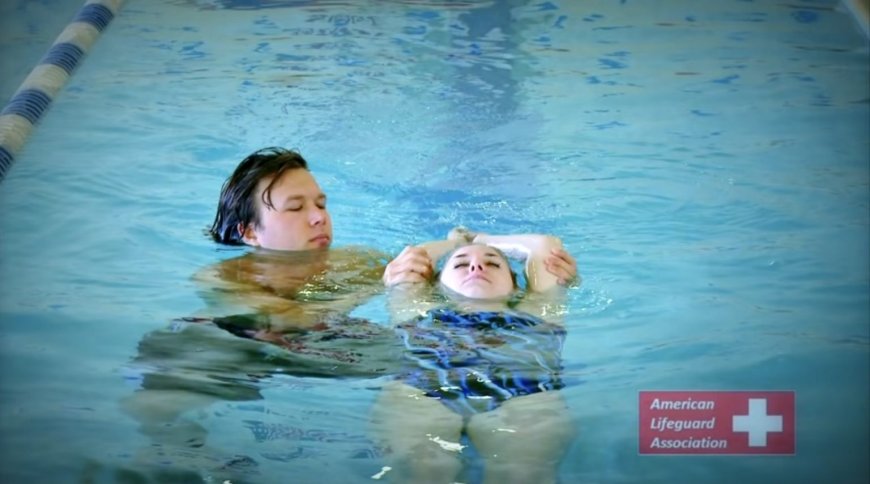National Lifeguard Shortage Impacts U.S., But East Lansing's Family Aquatic Center Stays Strong
The Center doesn’t just serve as a summer destination. it’s a platform for teaching critical lifesaving skills and offering community-wide impact through structured swim programming.

Inspired by original reporting from Julia Inge
As a national lifeguard shortage continues to disrupt the summer operations of pools, beaches, and water parks across the United States, one Michigan facility has found a way to remain fully staffed and resilient the East Lansing Family Aquatic Center.
While many aquatic facilities are still struggling with staffing and certification gaps brought on by the COVID-19 pandemic, East Lansing has managed to stay afloat by proactively investing in training, outreach, and employee retention strategies.
Pandemic Aftershocks Still Affect Certification
According to the American Lifeguard Association, the COVID-19 pandemic disrupted in-person training and certification pipelines for new lifeguards across the country. This led to a steep drop in available certified personnel, with over one-third of U.S. pools affected during the 20232024 seasons.
The toughest time for us was opening after the pandemic and our construction project, said Dana Kilponen, East Lansings Aquatics Specialist. We had a large turnover of staff.
In-House Training: A Key to Staying Open
Unlike many facilities that rely on external organizations for certification, the Family Aquatic Center employs its own lifeguard instructors and offers on-site training through American Red Cross-certified programs.
The certification itself takes about 26 hours, said Jim Jennings, East Lansings Operations Manager. We spread it over five different days for flexibility.
This localized training model not only saves money but also builds strong relationships between instructors and staff creating a more confident and well-prepared team.
Tackling the Cost Barrier
One major barrier for new lifeguards nationwide is the cost of certification, which can range from $300 to $600 elsewhere.
The expense is deterring a lot of people from even considering it, said Tobias Vanderbush, one of the Family Aquatic Centers lifeguards.
To offset this, East Lansing provides affordable, in-house training, and supplements wages with competitive pay informed by ongoing research.
Ive reached out to other aquatic centers across Michigan to analyze their wages, said Kilponen. We use that data to ensure ours stay competitive.
Outreach and Recruitment Strategies That Work
To bolster recruitment, the Family Aquatic Center:
-
Communicates directly with area high schools and student networks each spring
-
Recruits college students from nearby Michigan State University
-
Leverages word-of-mouth referrals from current staff
-
Offers off-season employment at the nearby East Lansing Hannah Community Center, an indoor year-round pool
Word-of-mouth has been one of the most effective tools, added Jennings.
Lifeguarding: More Than Just a Job
The Center doesnt just serve as a summer destination. its a platform for teaching critical lifesaving skills and offering community-wide impact through structured swim programming.
Learn-to-swim programming is truly essential for survival, said Kilponen.
Its rewarding when a lifeguard makes a save. You may have just saved someones life, added Vanderbush.
In 2024, the facility continued its popular swim lessons, held Monday through Thursday mornings and on Saturdays, with evening classes on Tuesdays and Thursdays.
Additional Relevant Points
Here are some more reasons why East Lansings model is succeeding and could be replicated:
-
Training culture: Offering in-house instruction creates loyalty and continuity among staff.
-
Retention by opportunity: Allowing lifeguards to work year-round keeps them active and engaged.
-
Skill development: Lifeguards learn first aid, CPR, public service, and teamwork all highly transferable to future careers.
-
Community engagement: Beyond water safety, lifeguards serve as role models for local youth.
Author Bio
Avani James is a U.S.-based journalist and aquatic safety advocate specializing in workforce development, lifeguard education, and public emergency training programs. With a focus on national lifeguard shortages and the future of recreation staffing, Tamoors work promotes best practices for retention, certification access, and structured swim instruction to protect communities across the country.

























